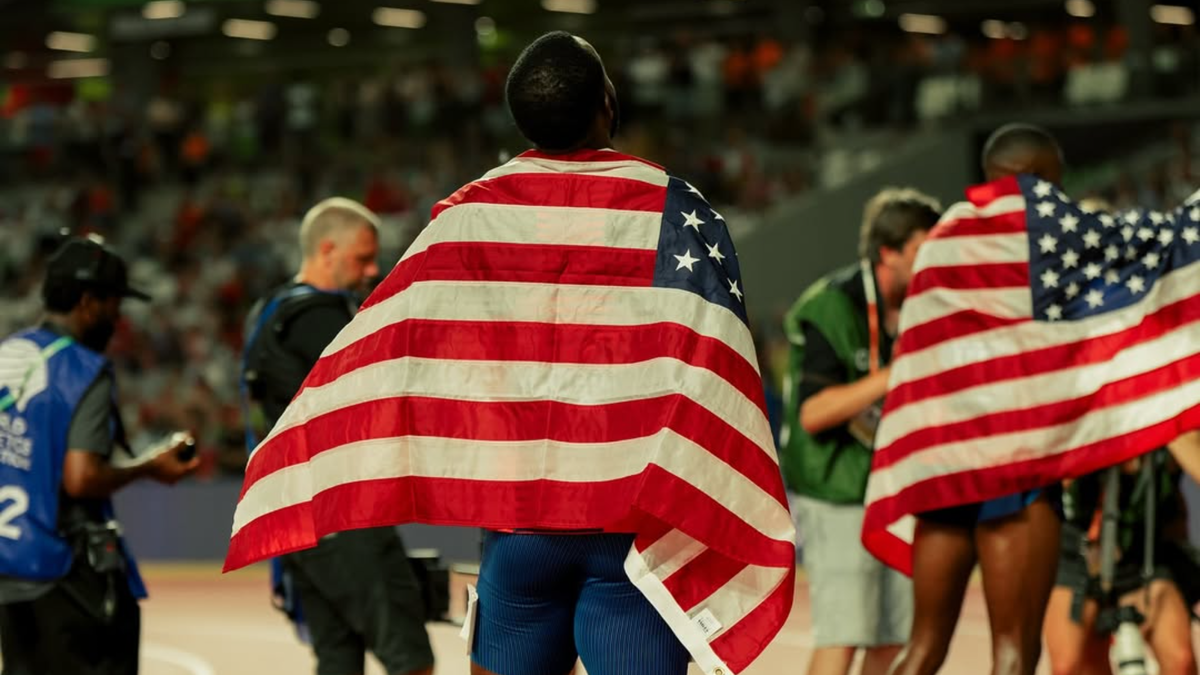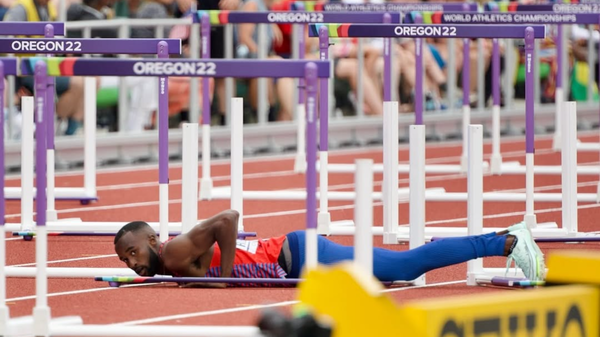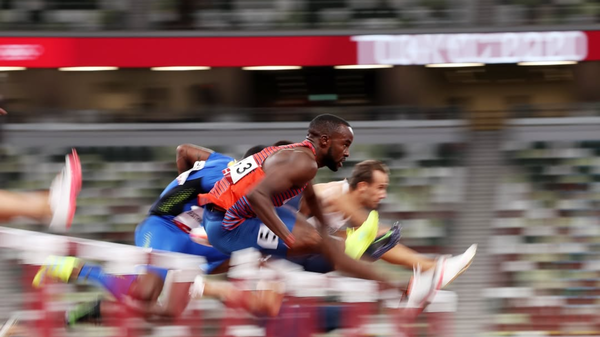
Imago
Credit: Instagram/ Daniel Roberts

Imago
Credit: Instagram/ Daniel Roberts
The current landscape of track and field in the United States is thriving, with stars like Noah Lyles, Kenny Bednarek, and Sha’Carri Richardson leading the charge on the global stage. Fans have every reason to be optimistic, as recent performances have translated hope into tangible success. In 2023, Noah Lyles completed a remarkable three-peat at the World Athletics Championships in Budapest. The momentum continued into the 2024 Paris Olympics, where he made history by becoming the first American since 2004 to win gold in the men’s 100m. Meanwhile, Sha’Carri Richardson disrupted Jamaica’s long-standing dominance in the women’s 100m at the World Championships and later contributed to Team USA’s victory in the 4x100m relay in Paris. However, not everything is perfect, and there are concerns surrounding a certain athlete who holds an Olympic silver medal.
Watch What’s Trending Now!
Ten months ago at the Paris Olympics, Daniel Roberts earned a silver medal in the men’s 110m hurdles, finishing behind Grant Holloway. But since then, his circumstances have taken a drastic turn. According to Roberts, he’s been relying solely on his prize money for the past six months. He also no longer has the support of his former sponsor, Nike. Explaining the situation in a social media post, the 27-year-old pointed out, “Being at the top does play a part in that but if your at the top but not much of a following and they don’t see you as marketable, those results will not mean nearly as much.” In response, a track and field coach offered his own perspective on the issue.
ADVERTISEMENT
On June 22, Coach Rob addressed the issue in detail during a YouTube podcast. He explained, “Nothing actually happened to Daniel Roberts between winning the 110 hurdles silver medal at the Olympic Games, again the pinnacle of the sport and the moment where we find out he’s not running for Nike or at least he finds out first and then, you know, has to go out there and compete. He’s been living like going off, you know, prize money earnings, winnings, like that’s how he’s been doing it since they dropped him.” Coach Rob also mentioned that he suspected something was off when he saw Roberts competing in the Grand Slam Track league—he was still wearing his old Nike gear. That shouldn’t have been the case for an Olympic medalist.

Imago
Credit: Instagram/ Daniel Roberts
Still, Coach Rob viewed Daniel Roberts’ situation as somewhat more fortunate. Why? Because Roberts was registered as an athlete in the Grand Slam Track league, which guaranteed him a base pay regardless of how he performed in races. That financial cushion gave him at least some stability. In contrast, Rob pointed to athletes like Bryce Deadmon, who faced even harsher realities—despite being an Olympic gold medalist, Deadmon lost his sponsorship and had no agreement with Grand Slam Track. That meant no steady income or fallback support.
ADVERTISEMENT
Reflecting on these situations, Coach Rob drew a sobering conclusion about the current state of professional track and field: even high-achieving athletes aren’t immune to financial instability if they lack visibility, sponsorship, or league support.
ADVERTISEMENT
The coach expresses concern about the growing trend of young athletes—especially those in high school and college—focusing solely on becoming professional track and field athletes or Olympians. His message is a reality check: “When you have high school college athletes and everybody focused on how they can be Olympians and they can be pros, like there are so many hundreds of thousands of athletes just in America who want to be at the highest level in the sport, like that’s just what’s actually happening. You have so many athletes who really want to be at that level, but right now, pro track and field doesn’t really have much for you. I mean, no shade, just being honest, if being a pro is actually a thing.” However, running unsponsored isn’t a new thing in the track and field sports.
ADVERTISEMENT
The track and field athlete who arrives in the Olympic trials unsponsored
Last summer at the U.S. Olympic Trials, Parker Valby made headlines—not just for her speed, but for what she wasn’t wearing. Fresh off her NCAA career, she stepped onto the track unsponsored, still repping her University of Florida kit. No Nike. No New Balance. Just orange and blue—and a lot of confidence.

Imago
Credit: Instagram/ Daniele Roberts
The reason? A unique clause in Valby’s previous NIL deal with Nike. Though those deals typically end with college eligibility, hers gave Nike the right to match any pro offer. So, instead of rushing into a contract, Valby waited, weighing her options while betting on herself. That meant showing up on one of the sport’s biggest stages with no sponsor—a bold move that turned heads. And it paid off. By October, Valby inked a deal with New Balance and moved to Boston to kickstart her pro career on her own terms. Do you find this complicated? Please share your takes with us.
ADVERTISEMENT
ADVERTISEMENT
ADVERTISEMENT
ADVERTISEMENT